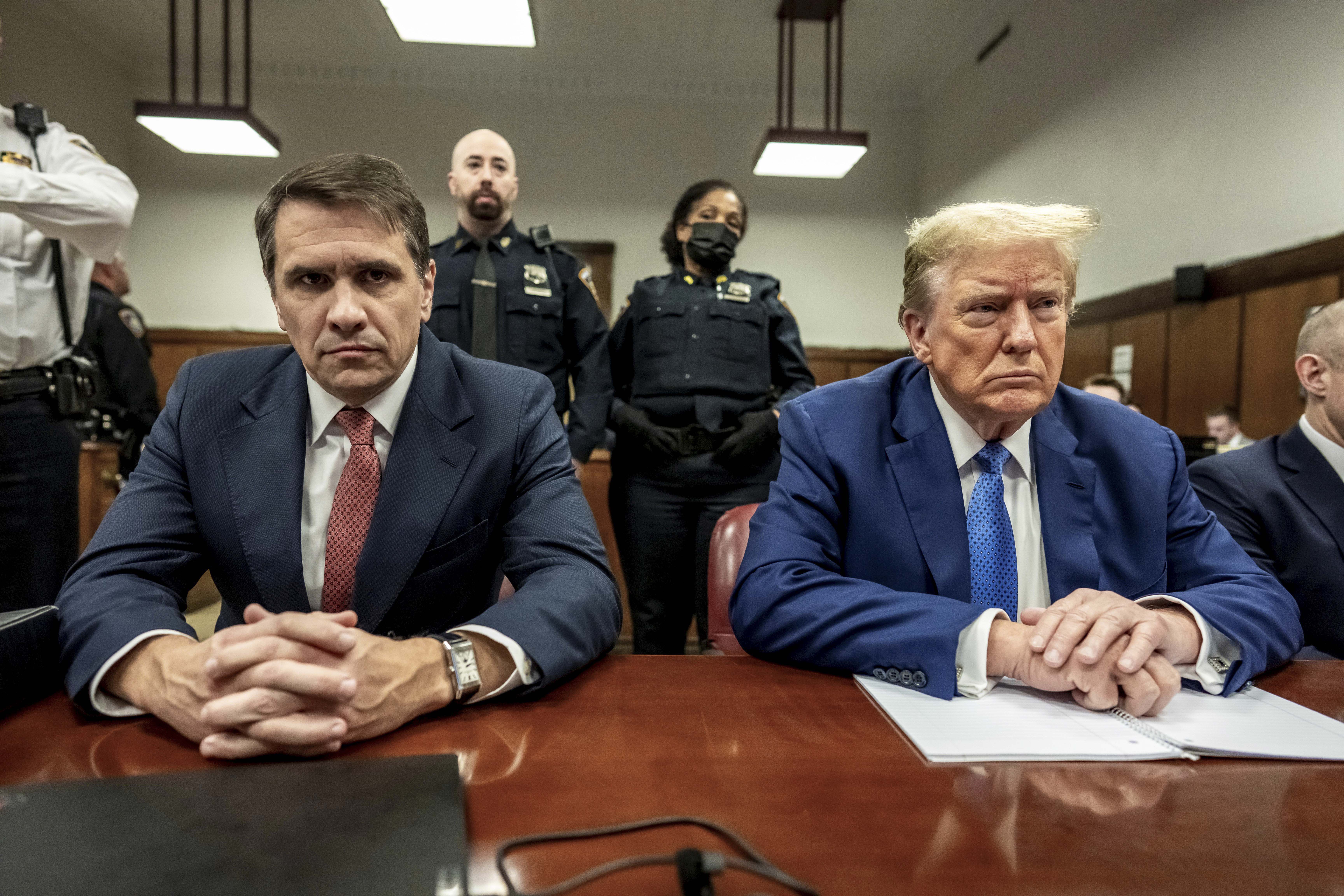Updated
Defense Moves to Dismiss Case as Trump Trial Nears End
Save

Former President Donald Trump and attorney Todd Blanche attend his trial at Manhattan Criminal Court on May 20, 2024 in New York City. Mark Peterson-Pool/Getty Images
Here is the latest
•
Trump Calls Judge a 'Tyrant'
•
Judge Reserves Ruling
•
Prosecutors Say Trump Participation Is Enough to Prove Intent
•
'Fool 12 New Yorkers?' Defense Ask Judge to Find Cohen Not Credible
•
Defense Moves to Dismiss Case